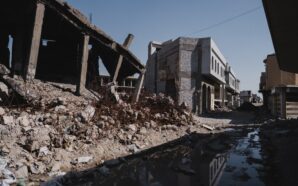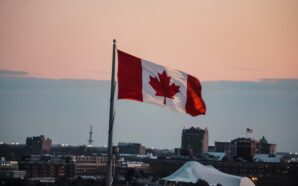

Credit: Unsplash
Rishi Sunak Explores Policies to Safeguard the Next Generation from Tobacco Harm
British Prime Minister Rishi Sunak is contemplating groundbreaking anti-smoking measures aimed at safeguarding the health of the next generation. Reports indicate that Sunak is exploring strategies akin to those adopted by New Zealand last year, which include incrementally raising the legal smoking age, ultimately prohibiting tobacco sales to individuals born on or after January 1, 2009.
The proposals align with the government’s overarching ambition to achieve a smoke-free status in the United Kingdom by 2030. To realize this goal, various initiatives have already been initiated, such as the distribution of free vape kits, a voucher program incentivizing pregnant women to quit smoking, and consultations on mandatory cigarette pack inserts.
A government spokesperson stated, “We want to encourage more people to quit and meet our ambition to be smoke-free by 2030, which is why we have already taken steps to reduce smoking rates.” However, the spokesperson refrained from providing additional comments regarding the recent reports.
These potential measures are part of a new consumer-focused agenda from Sunak’s team in the lead-up to the anticipated election next year. It reflects the government’s commitment to address public health concerns, particularly in relation to smoking cessation and youth protection.
https://x.com/MirrorNow/status/1705465769843458144?s=20
New Zealand’s approach to reducing smoking rates involved increasing the legal smoking age and reducing the nicotine content of tobacco products and limiting their sale to specialty tobacco stores, rather than convenience stores and supermarkets.
The consideration of such policies has generated discussions and consultations, with the Labour party expressing interest in phasing out cigarette sales over time for younger generations, similar to New Zealand’s approach.
In addition to anti-smoking measures, Sunak’s administration has been exploring various policy changes, including a potential fine for missed medical appointments and reforms to the A-level education system.
Critics argue that these shifts reflect the government’s pursuit of clear policy distinctions in areas like welfare and law enforcement, potentially setting the stage for political debates in the upcoming election.
Biden Family Once Again Making Headlines
-
Company Addresses Auto-Translation Error Impacting Palestinian Users Meta, the parent company of Instagram, has issued a formal apology for...
-
China’s Ambitious Plans to Double Its Nuclear Warhead Stockpile Highlighted in Pentagon’s Annual Report The annual report released by...
-
Strengthening Partnerships and Providing Support in Challenging Times In a collaborative effort between the U.S. Congress and the White...
-
Humza Yousaf Extends Support and Sanctuary Amidst Gaza Conflict Humza Yousaf, the First Minister of Scotland, has extended a...
-
U.S. Stresses Peace and Humanitarian Aid in Israeli-Palestinian Conflict In an exclusive interview aired on Sunday, President Joe Biden...
-
Urgent Call for Aid as Communities Reel from Tremors The western province of Herat in Afghanistan has been rocked...
-
Calls for Peace Amid Diverse Perspectives on Ongoing Crisis In response to a series of recent demonstrations across Canada,...
-
Celebrity Voices in the Israel-Palestine Dialogue In the midst of the ongoing Israel-Palestine conflict, a group of celebrities has...
-
Devastating Loss of Lives Sparks Outrage and International Concern A devastating Russian attack on the peaceful village of Hroza,...
-
Dutch Research Organization’s Forecast Faces Skepticism from Scientists and Authorities Recent predictions by the Solar System Geometry Survey (SSGS),...
-
Saudi Arabia Advocates Independent Palestinian State as Key to Peace The Saudi Foreign Minister, Faisal bin Farhan, reiterated Saudi...
-
Justin Trudeau Calls for Answers in the Hardeep Singh Nijjar Case Canadian Prime Minister Justin Trudeau has issued a...




















